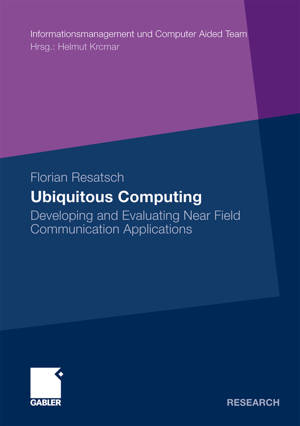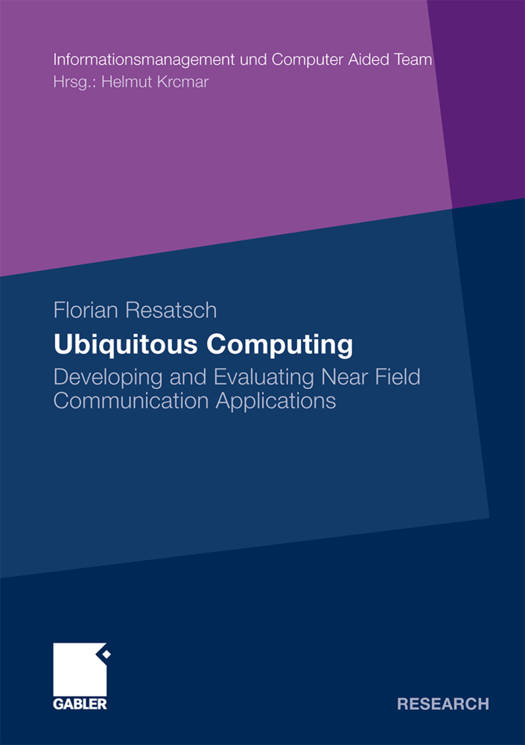
- Afhalen na 1 uur in een winkel met voorraad
- Gratis thuislevering in België vanaf € 30
- Ruim aanbod met 7 miljoen producten
- Afhalen na 1 uur in een winkel met voorraad
- Gratis thuislevering in België vanaf € 30
- Ruim aanbod met 7 miljoen producten
Zoeken
Ubiquitous Computing
Developing and Evaluating Near Field Communication Applications
Florian Resatsch
€ 52,95
+ 105 punten
Omschrijving
Ubiquitous Computing has been the subject of discussion in various research areas for some time now. Over the past several years RFID and Near Field Communication (NFC) technologies have become the driving force behind the vision of Ubiquitous Computing. In particular, NFC could become a real Ubiquitous Computing technology in consumer hands if it succeeds in capturing distribution channels, for example due to integration into the mobile devices market. Even if that will be the case in the future, application developers and entrepreneurs interested in using RFID or NFC technologies will be faced with the challenges of negotiating the process of moving early prototypes into a final product. In particular, given the physical nature of the technology, it is imperative that the user be involved in the very early stages of development in order to bring successful, consumer-accepted applications to market. In 2009, NFC technology still finds itself in the starting blocks-accordingly, these research results come at the right time. Previous approaches to the challenge of developing NFC applications have neither applied research methods specific to Ubiquitous Computing, nor have they integrated the appropriate design guidelines. Florian Resatsch's work focuses specifically on these issues and makes use of a unified developmental and evaluation process model. The work draws on knowledge from a range of disciplines and combines these into a process for developing and evaluating Ubiquitous Computing applications using Near Field Communication (NFC) as an enabling technology.
Specificaties
Betrokkenen
- Auteur(s):
- Uitgeverij:
Inhoud
- Aantal bladzijden:
- 274
- Taal:
- Engels
- Reeks:
Eigenschappen
- Productcode (EAN):
- 9783834921673
- Verschijningsdatum:
- 27/05/2010
- Uitvoering:
- Paperback
- Formaat:
- Trade paperback (VS)
- Afmetingen:
- 147 mm x 208 mm
- Gewicht:
- 385 g

Alleen bij Standaard Boekhandel
+ 105 punten op je klantenkaart van Standaard Boekhandel
Beoordelingen
We publiceren alleen reviews die voldoen aan de voorwaarden voor reviews. Bekijk onze voorwaarden voor reviews.











